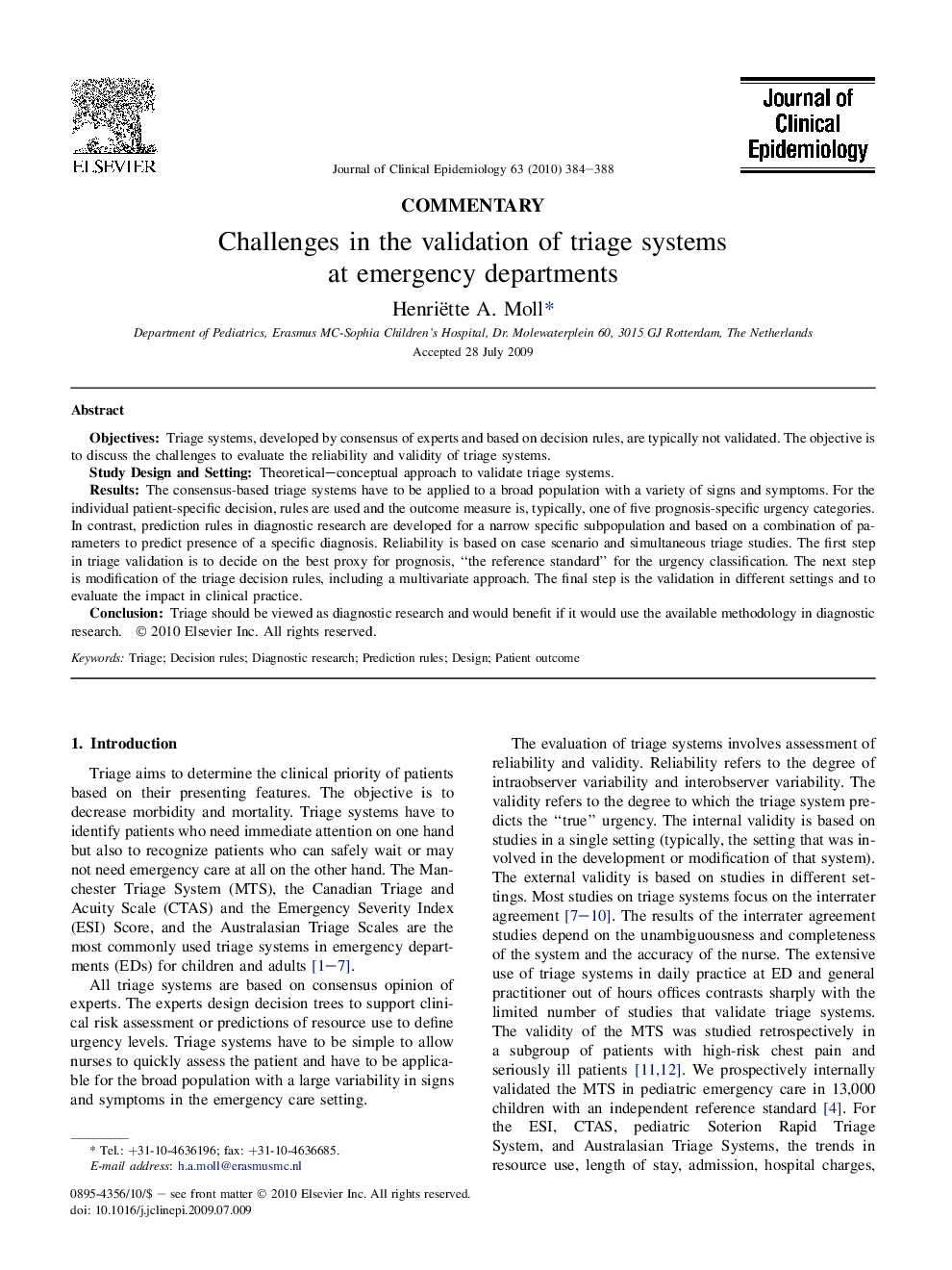| Article ID | Journal | Published Year | Pages | File Type |
|---|---|---|---|---|
| 1082490 | Journal of Clinical Epidemiology | 2010 | 5 Pages |
ObjectivesTriage systems, developed by consensus of experts and based on decision rules, are typically not validated. The objective is to discuss the challenges to evaluate the reliability and validity of triage systems.Study Design and SettingTheoretical–conceptual approach to validate triage systems.ResultsThe consensus-based triage systems have to be applied to a broad population with a variety of signs and symptoms. For the individual patient-specific decision, rules are used and the outcome measure is, typically, one of five prognosis-specific urgency categories. In contrast, prediction rules in diagnostic research are developed for a narrow specific subpopulation and based on a combination of parameters to predict presence of a specific diagnosis. Reliability is based on case scenario and simultaneous triage studies. The first step in triage validation is to decide on the best proxy for prognosis, “the reference standard” for the urgency classification. The next step is modification of the triage decision rules, including a multivariate approach. The final step is the validation in different settings and to evaluate the impact in clinical practice.ConclusionTriage should be viewed as diagnostic research and would benefit if it would use the available methodology in diagnostic research.
